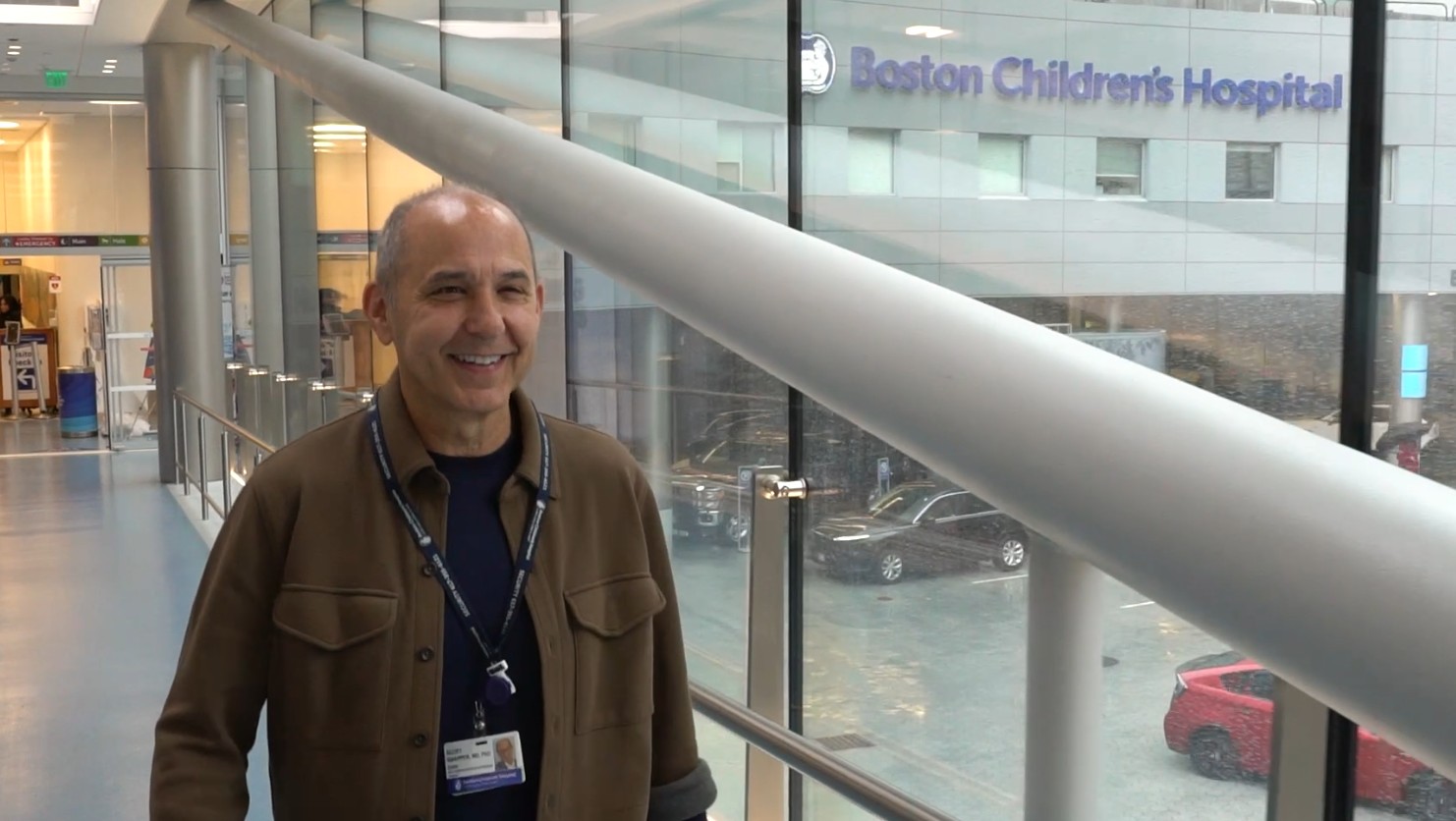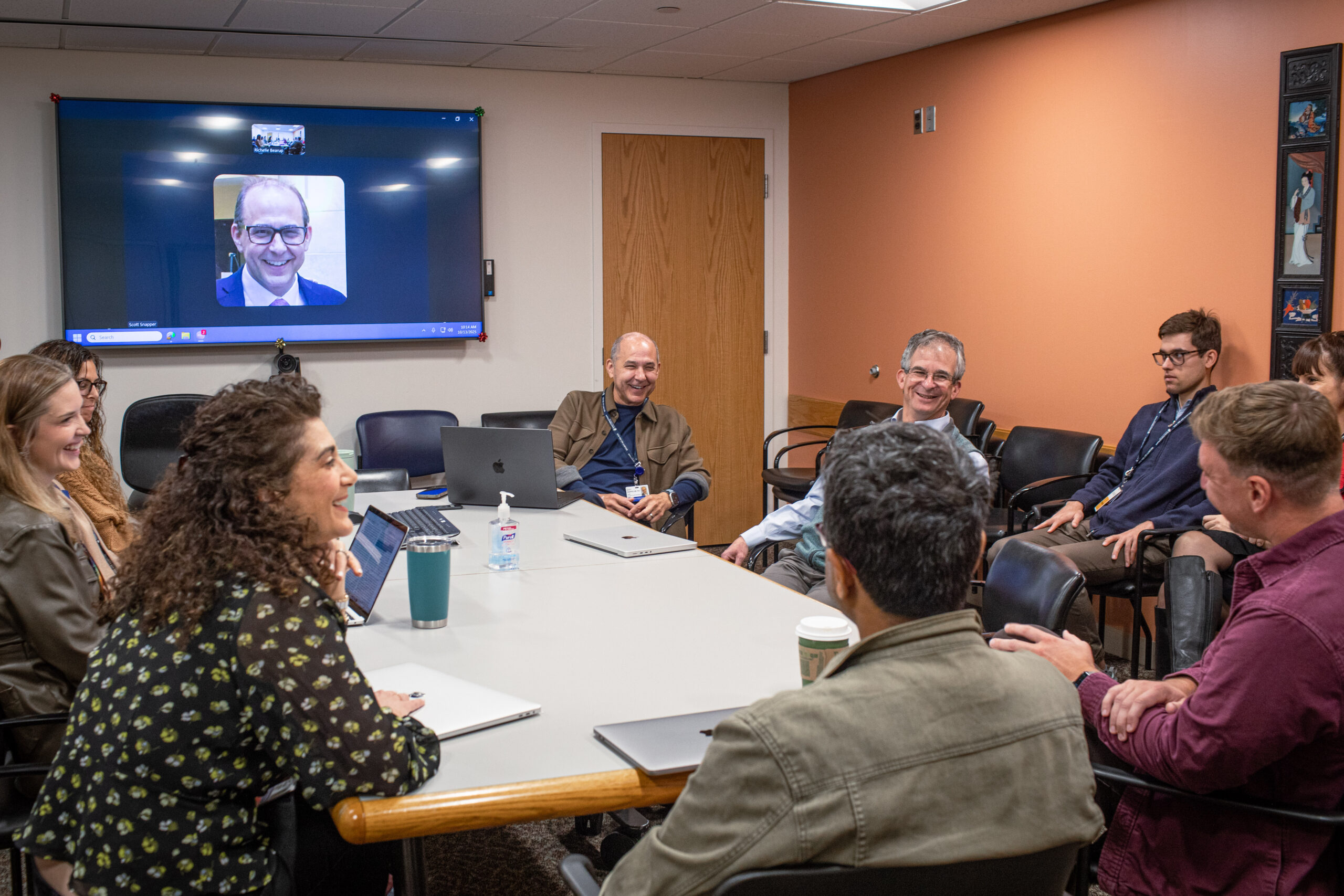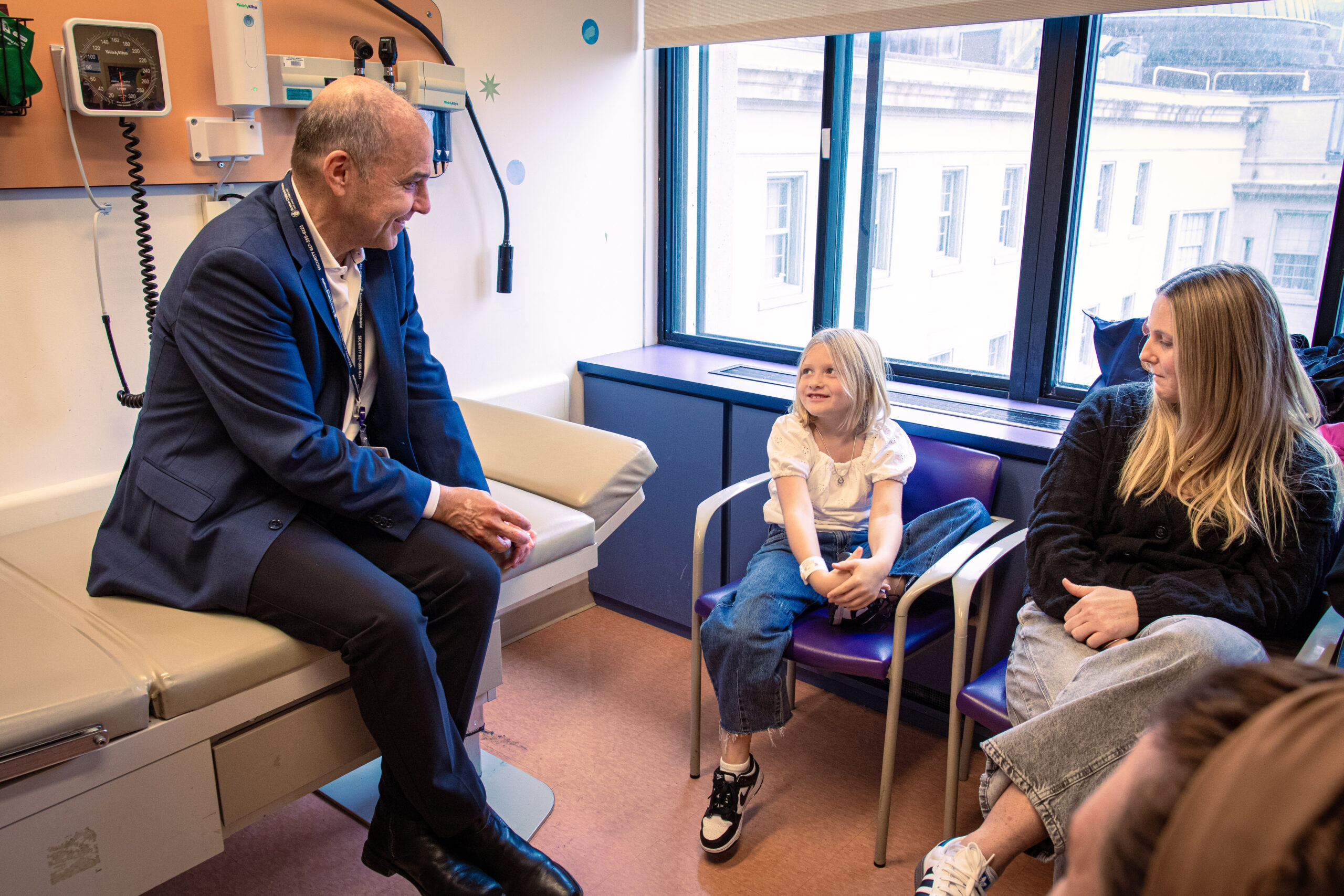Chief, Division of Gastroenterology, Hepatology, and Nutrition; Wolpow Family Chair and Director, Center for Inflammatory Bowel Disease, Boston Children's Hospital; Physician, Crohn’s and Colitis Center, Division of Gastroenterology, Brigham and Women’s Hospital; Egan Family Foundation Professor of Pediatrics in the Field of Transitional Medicine and Professor of Medicine, Harvard Medical School; Boston, MA
Dr. Scott Snapper’s path to becoming a renowned expert in Very Early Onset Inflammatory Bowel Disease (VEOIBD) started when he was just five years old, when he began accompanying his father, a family physician on house calls. He credits these early patient visits with igniting a passion to devote his life to taking care of people.
These formative experiences took him from his small hometown in the Catskills to leading the Snapper Lab at Boston Children’s Hospital, where he applies his expertise in immunology, microbiology, genetics, and gastroenterology to develop new treatment approaches for the youngest patients with Crohn’s and ulcerative colitis.

His groundbreaking scientific discoveries have not only changed the lives of families coping with VEOIBD, but their impact has also rippled through the wider IBD population.
“Science is exhilarating – it’s the pursuit of questions that can change lives.”
One of his earliest innovations was creating the first mouse model of a human deficiency, Wiskott-Aldrich syndrome (WAS), a rare, x-linked immune deficiency that is associated with colitis, where both the mice and humans can present with disease. Dr. Snapper demonstrated that gene therapy was effective for preventing colitis in mice, which served as the basis for successful gene therapy in humans with WAS.
Dr. Snapper and his colleagues then went on to identify IL10 receptor deficiency as another cause of IBD that could be cured with a stem cell transplant. But, as not all patients with this deficiency were candidates for transplants, he set out to find other ways to treat them.
To accelerate this research and explore other potential immune deficiencies underlying IBD, Dr. Snapper conceived and launched the VEOIBD Consortium together with Dr. Alexio Muise in Canada and Dr. Christoph Klein in Germany.
“No single lab can solve these complex diseases alone. Collaboration is the engine of progress.”
The VEOIBD Consortium is designed to study this rare form of IBD that presents in children younger than age six and is often characterized by severe disease. As conventional therapies and surgery often fail these children, the need for innovation is urgent.
To date, the Consortium has enrolled the largest-ever global cohort of children with VEOIBD. As a result of this unprecedented international effort in data gathering, sharing, and analysis, the Consortium has identified 15 root causes for IBD. This has led to changes in clinical practice. Patients with some of these identified causes now have an opportunity for a cure with stem cell transplants.

This research has also led to three investigational therapies, including one stemming from Dr. Snapper’s continued focus on IL10. He discovered that patients with this deficiency overproduced IL1, a key driver of inflammation. In studying this mechanism, he discovered that blocking IL1 in these patients controlled their inflammation, providing an alternative treatment for those who were not candidates for transplant. Importantly, this finding also offered hope for a broader IBD population.
While the percentage of IBD patients with IL10 deficiency is small, Dr. Snapper found that a significant number behave as if they are IL10 deficient, overproducing IL1. Now he is working to develop the first treatment for patients with this IL1 signature who experience fibrosis, one of the most severe complications of Crohn’s disease.
“What’s particularly thrilling about our research is that we can use very rare immune deficiencies as guideposts for IBD in general and identify new pathways for treatment.”
Another area of study builds on his earlier WAS research when he discovered the immune deficiency was associated with defects in regulatory T-cells, which lower inflammation. Dr. Snapper’s team was the first to explore whether increasing the number of these regulatory T-cells could benefit patients with IBD, and early results are promising.
His team demonstrated that low doses of IL2 could expand regulatory T-cells in people with moderate-to-severe ulcerative colitis, leading to improvements in their condition. Now he is studying this pathway in Crohn’s disease. He has identified biomarkers to predict response to IL2 therapy – another first – potentially making a new precision medicine approach possible.
Pivotal to Dr. Snapper’s career achievements was guidance from a college friend initially, and then advice shared by several mentors, who suggested he consider combining research with his interest in medicine. This advice changed Dr. Snapper’s trajectory from a doctor to a physician-scientist. As he works with young physician scientists, he aims to instill the same enthusiasm for science that his early mentors inspired in him.
“I try to help my mentees see the excitement in science and guide them so they can flourish and change the world.”
As the principal investigator of a National Institutes of Health training grant funded for 40 years and having mentored more than 30 graduate or post-doctoral fellows at Harvard, training future leaders in the field of IBD is a priority for Dr. Snapper.

A notable example of the impact of his mentorship is a discovery involving IL12 and IL23. While working with his mentee, Dr. Lauren Collen, to help one particularly sick child, they searched but were unable to find a genetic driver. They decided to try a medicine that blocks IL12/23, and the child, who had been hospitalized for more than a month, got better overnight.
They then looked for increased IL12/23 signaling in their other patients and found more who benefited similarly from the medicine. In the process, they may have identified biomarkers for response to IL12/23 blockade, which have the potential to help guide treatment more broadly for IBD patients.
“When I started out, I had a dream of doing basic science to ultimately help people. I hoped it would benefit the patients I see, but that wasn’t a certainty. Now, when I’m able to directly translate my lab research to help a patient, it’s just extraordinary.”

As Dr. Snapper looks to the future, he is hopeful that the therapeutic approaches he is investigating and the biomarkers he’s identified will expand the precision medicine toolbox available to IBD providers. He believes technological advances will make even more breakthroughs possible for patients.
From artificial intelligence and advanced molecular technologies to help identify subtypes of IBD, enabling more precise treatments and potentially disease interception, Dr. Snapper remains optimistic that further progress in genetic engineering, adding protective components to a patient’s immune or intestinal cells, will open doors for both treatment and prevention.